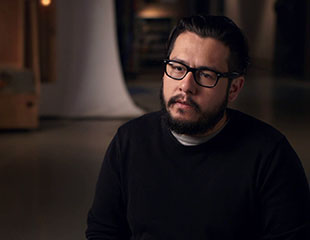When Sleep Is Stressful, Not Restful
4-minute read
When Sleep Is Stressful, Not Restful
4-minute read
Getting enough good sleep is as essential to mental and physical health as food and water are. When sleep is compromised, it can be the cause or the effect of a mental health challenge — sometimes both. For example, stress can interrupt or lessen the quality of a person’s sleep; that lack of good sleep can make it harder to process stress effectively, which further degrades the person’s sleep. After a time, cycles like this can lead to chronic sleep deprivation, which significantly affects health, performance and safety.
Troubled sleep comes in many forms, including insomnia, nightmares and restlessness.
Insomnia
Insomnia refers to trouble getting to sleep, staying asleep or getting good-quality sleep. One recent in-depth study found that 57% of Veterans of the post-9/11 era have insomnia disorder. (For comparison, a 2020 report from the Centers for Disease Control and Prevention says that 14.5% of adults had trouble falling asleep and 17.8% of adults had trouble staying asleep most days or every day in the preceding month.) The percentages were significantly higher for Veterans of this era who have been diagnosed with posttraumatic stress disorder (93%), traumatic brain injury (78%) or pain (70%).
For Shannan, insomnia was accompanied by sleep apnea, a condition in which breathing temporarily stops throughout the night, interrupting the cycles that make for restful sleep and often aggravating mental health conditions.
“I’ve been diagnosed with bipolar disorder,” the Army Veteran says. “And a part of what led to that diagnosis is an extreme depression where I was at a point of literally committing suicide.”

A 2/7 Marine moves on from his lowest point
Shannan’s low point came after she transitioned out of the Army. Civilian life didn’t have the support services she had grown used to after a dozen years in the military. Without those resources, Shannan felt like her new life had no guardrails and nothing to prevent her from failing.
“I really didn’t feel like myself,” Shannan says. “I was kind of taking things too personal, or I was more quick-tempered, had a shorter fuse.”
With her background as a medic, Shannan knew she needed professional support when she couldn’t manage her mental health on her own.
“Being a mother, being a wife, being a Soldier, or especially a leader of Soldiers, I was so used to and in tune to taking care of other people that I didn’t really ever take the appropriate time aside for myself to balance it with self-care,” Shannan says. In the years since she served, she has tried a number of different treatments, and has found a lot of relief in just settling down.
“I have tried both individual and group therapy, and I feel like I’ve made the greatest progress in these past couple years because I’m rooted,” she says. Along with weekly therapy, Shannan’s church, her community and her family have been instrumental in improving her mental health, particularly when it comes to providing her with support and perspective.
Nightmares
Sleep quality is just as important as sleep quantity. For those whose sleep is plagued by nightmares, needed rest can turn into added stress. Anxiety about having nightmares can even cause some people to avoid sleep at all costs.
That’s what happened to Phillip.
His service as a Navy Seabee landed him in Honduras, where he provided aid in the wake of a historic hurricane. With rainfall measured in feet, not inches, Hurricane Mitch killed thousands of people and left even more homeless. It wrecked the small country’s infrastructure, including its sewage systems, resulting in outbreaks of cholera, dysentery and malaria.
“It’s just death everywhere,” Phillip explains. “It was just sickening there. Just the smells and everything were just — it was like hell on Earth.”
Phillip left the military a changed man. He often couldn’t sleep, and when he could, he was tormented by nightmares about the devastation he had seen. When Phillip started thinking that ghosts from Honduras were visiting him in his dreams, he looked to avoid sleep any way he could. That led him to use the stimulant methamphetamine. Over the next 10 years, he lost his girlfriend, his home, his car and finally his freedom.
When Phillip found help at VA, he received transitional housing, anger management treatment, recovery services to help him stop using drugs, and psychiatric support for his PTSD. Phillip still has nightmares sometimes, but they’re not as frequent or unwelcome as they once were.
“They’re beautiful gifts,” Phillip says now. “I’m supposed to remember these things. I’m not supposed to forget, like I wanted to before, and I’m dealing with them in a better, better light.”
Phillip has become a state-certified peer specialist to help other Veterans with mental health challenges.
Restlessness
For some, like Noel, trouble sleeping means feeling restless while they’re trying to rest. The U.S. Marine Corps Veteran survived a roadside bomb explosion with minor injuries while serving in Afghanistan; his platoon sergeant was killed in the blast. He set his experience and his feelings of survivor’s guilt aside while he served, but when he transitioned out of the military, the trauma hit him hard.
The restlessness came first, Noel says. That was soon followed by an inability to trust people, isolation, uncontrollable crying and a suicide attempt. It was then that he realized, “I cannot be lazy with taking care of my mental health.”
“There’s a lot of things that happen overseas that you’ll never be able to explain, and it impacts everybody different,” Noel says. “When you can recognize it, when you know how it happens and what happens, you can deal with it. Ask for help, don’t be afraid.”
